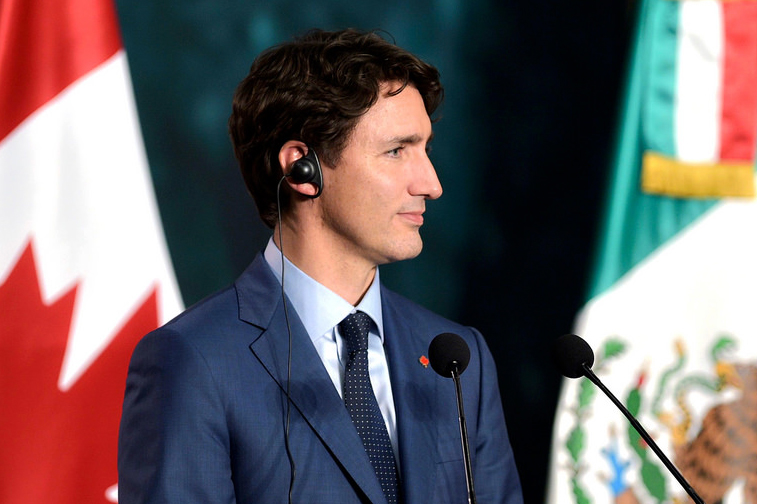Liberals win minority government with 157 seats

On Monday, Oct. 21, Canadians elected members of the Liberal Party in 157 districts — 46.4 per cent of total seats — securing a minority government for Justin Trudeau and the Liberals in Canada’s forty-third federal election.
The Conservative Party of Canada will once again form the Official Opposition, acquiring 121, or 35.8 per cent of the total seats — as well as the majority of the popular vote.
The House of Commons, the democratically-elected body of Canadian parliament, which is at the centre of political power and allows for the introduction of governing laws, has a total of 338 seats: a majority government requires a single party to achieve 170 seats in the legislature.
In a minority government, the party in power requires the cooperation and support of other parties in order to stay in power, as well as introduce and pass laws. With a minority government, laws may only be passed with enough support to form a majority (170).
Without the majority support of a single party, this often leads to stagnation or delay in the legislative process. Opposing members of parliament, in these situations, have the power to vote against certain laws that the party in power wishes to introduce, or even make a motion of no-confidence against the head of state.
Because of this, minority governments tend to be less stable and prone to re-election. Canada has had 14 minority governments in its history. The last minority government in Canada, from 2006-2008 and 2008-2011, was led by Stephen Harper and the Conservatives. It was also one of the longest minority governments in Canadian history.
In this case, the Conservatives saw an increase in the size of their party’s power, increasing from 127 seats in 2006 to 143 in 2008. At this time, there were 308 seats in the House of Commons, requiring 154 seats for a majority government.
Conversely, since the Liberal government was elected in Canada’s forty-second election in 2015, they have lost 27 seats: from 184 to an unconfirmed 157.
As opposed to a majority government, which cycles approximately every four years, a minority government often only lasts two-three years before re-election is called. This suggests that Trudeau and the Liberals may have less time to fulfill or achieve their platform and party promises than the last parliament cycle.
From a popular vote perspective, the Conservatives secured 6,155,622 votes total, or 34.4 per cent — 239,712 more than the Liberals at 5,915,950, or 33.1 per cent. This number may change as more polls report.
The New Democrats came in third, at approximately 2,849,214, or 15.9 per cent of the votes and 24 seats; the Bloc Québécois followed with 1,376,135, or 7.7 per cent of the votes and 32 seats; and the Green Party finished slightly behind with 1,162,361, or 6.5 per cent of the vote and 3 seats.
As well, an independent candidate, Jody Wilson-Raybould, has secured a re-election and her former seat in the riding of Vancouver Granville, in British Columbia. She received 16,537 votes, or 32.3 per cent, defeating Liberal candidate Taleeb Noormohamed with 13,637 votes, or 26.6 per cent.
Despite the relatively small division in the popular vote between the Bloc and Greens — just 213774 — it is interesting that the parties finished with drastically different numbers of seats in the House of Commons: 32 versus 3.
However, this is outweighed by the difference between the popular vote and electoral vote of the Liberals and Conservatives, who saw a 36-seat difference despite almost 250,000 fewer votes.
In this year’s forty-third election, within the Waterloo Region, five Liberal MPs were re-elected, with a tight finish in Kitchener-Conestoga between Liberal candidate Tim Louis and Conservative candidate Harold Albrecht.
In the Kitchener-Conestoga riding, with only five polls remaining to report, it has been unofficially confirmed that Louis (Liberal) has defeated Albrecht (Conservative) by 273 votes: 20,106 to 19,833 — a margin of just 0.5 per cent.
Green Party leader Mike Morrice has called his second-place Kitchener Centre finish “historic,” capturing 26 per cent of the riding’s vote, who finished with 14,215 votes, and beating the Conservatives, who finished with 13,111.
Most notably, Maxime Bernier, leader of the People’s Party of Canada, will be losing his seat in Parliament after failing to secure a victory in the riding of Beauce, Quebec — a seat that he has held since 2006.
Bernier was defeated by Richard Lehoux, the Conservative candidate, who was elected with 22,817 votes, at 38.6 per cent of the total, over Bernier’s 16,772 votes, at 28.4 per cent of the total.
Voter turnout was the highest in the Waterloo riding with over 73 per cent — almost 63,000 — eligible voters who cast a ballot.
Turnout in the other regions varied, from roughly 64 per cent in Cambridge, with over 57,000 voters, to over 68 per cent in Kitchener-Conestoga, with over 50,000 voters.
Nationwide, approximately 66 per cent of registered electors turned out to vote — 17,890,264 out of a total of 27,126,166, not including those who registered on election day itself.
This does, however, represent a slight drop from the 68.3 per cent — or 17,711,983 — of voters in 2015.


